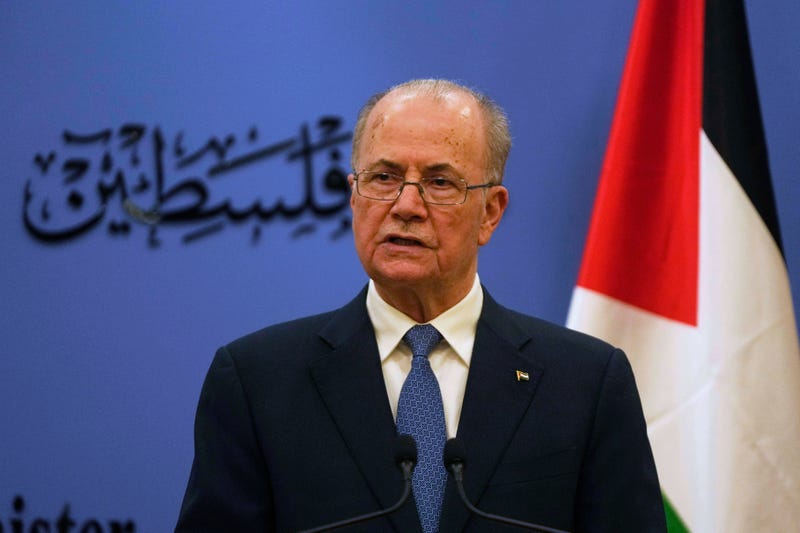
BRUSSELS (AP) — More than 60 delegations were meeting in Brussels on Thursday to discuss reconstruction, governance and security in the Gaza Strip and reforming the Palestinian Authority.
France and Saudi Arabia are chairing a meeting of the Palestine Donor Group, focusing on reforms of the Palestinian Authority called for by a U.S. peace plan that won approval at the U.N. Security Council on Monday.
The Palestinian Authority administers semiautonomous pockets in the Israeli-occupied West Bank, and is making a renewed push to become a player in postwar Gaza.
The European Union, the Palestinian Authority's largest financial supporter, hopes it can effectively rule Gaza after deep reforms. But Washington is demanding that the Palestinian Authority make reforms first, and Israel rejects any role for it in Gaza.
The meeting won't seek financial pledges for Gaza's reconstruction. An upcoming event in Egypt is being planned to raise that money.
While not a central player so far in the negotiations over the territory's future, the EU is increasingly vocal about securing a role in shaping postwar Gaza.
The 27-nation bloc is planning to train 3,000 Palestinian police officers to secure the Gaza Strip. French Foreign Minister Jean-Noël Barrot pledged 100 French police officers for that mission.
The EU hopes to recruit from a pool of about 7,000 Gazan police officers once paid by the Palestinian Authority, said a senior official tasked with communicating for the EU foreign policy service but not authorized to be publicly named. The EU is discussing with “neighboring countries” of Gaza to host the training program.
The U.S. plan calls for the Israeli military to slowly cede territory in Gaza to an advancing mix of these police officers and an International Stabilization Force.
The EU has a small presence of diplomats and military officers in the U.S.-run civilian-military command center in southern Israel overseeing the peace plan. It's seeking membership in the yet to be formed Board of Peace, to which the U.N.-backed plan gives ultimate authority in Gaza while a “technocratic, apolitical committee of competent Palestinians” will run the day-to-day civil service in the coastal enclave.
The EU is pushing for that committee to be largely drawn from the Palestinian Authority government led by Palestinian President Mahmoud Abbas. The 90-year-old Abbas still holds authoritarian power in tiny pockets of the West Bank, but is increasingly marginalized and weakened by Israel, deeply unpopular among Palestinians, and struggling for a say in a postwar Gaza Strip.
A key point of the American peace plan is for a deep reform of the Palestinian Authority.
“The money is always conditioned with reforms,” European Commissioner for the Mediterranean Dubravka Šuica said. The EU will push the Palestinian Authority to scrap its so-called martyrs’ fund and overhaul its textbooks, among other reforms, she said.
Barrot said that the Palestine Donor Group meeting aims to “to reform the Palestinian Authority, to strengthen it in order for the Palestinian Authority to be in charge when the time comes.”
The formation of the Board of Peace and the committee have yet to win backing from Palestinian society.
If seen as a tool for the U.S. or Israel, prominent Palestinians may be reluctant to join. The Hamas militant group denounced the U.N. resolution on Monday, saying it aims to further Israel’s interests.
“Palestinian have to be the ones who are leading and owning the processes that are happening in Palestine," EU foreign policy chief Kaja Kallas said.